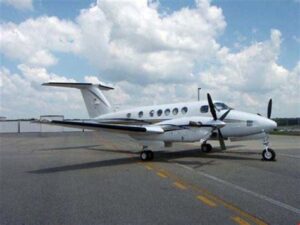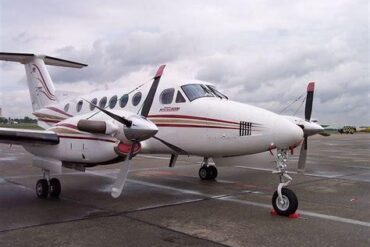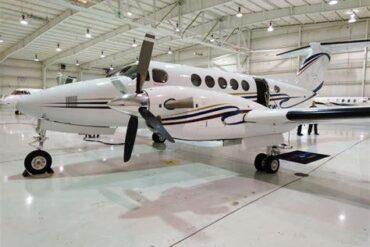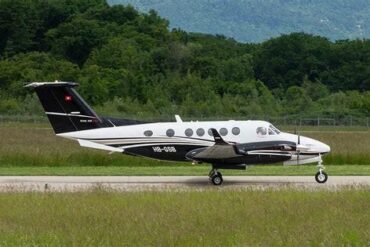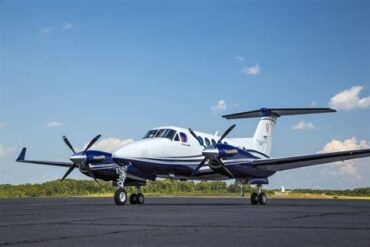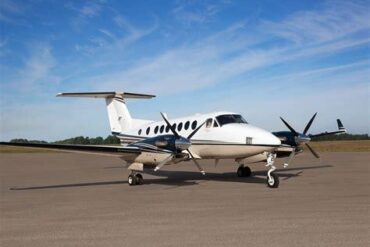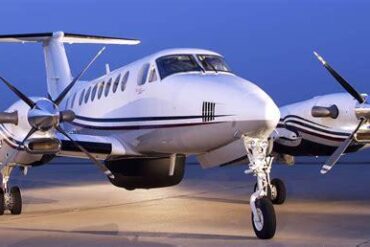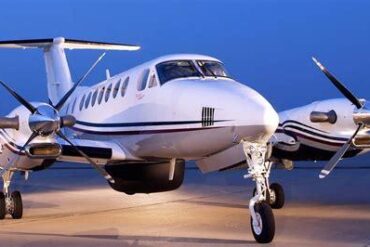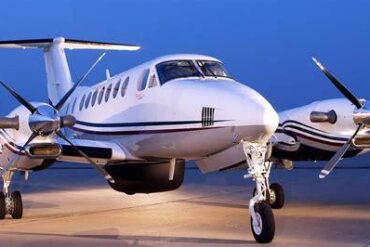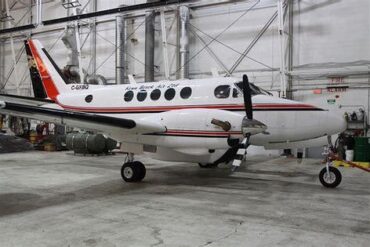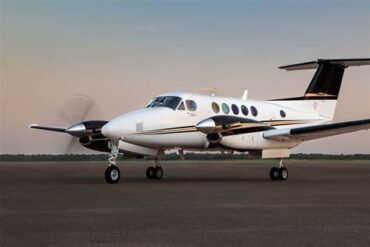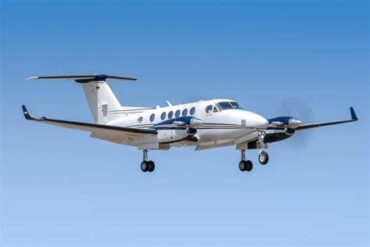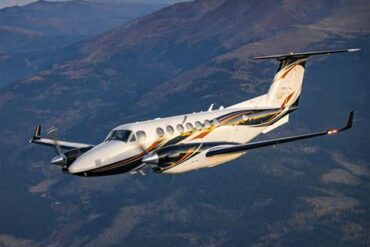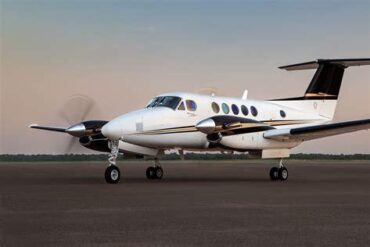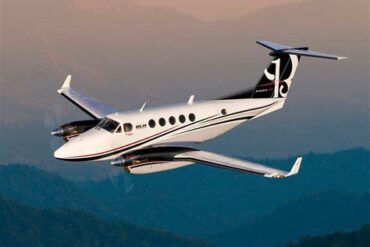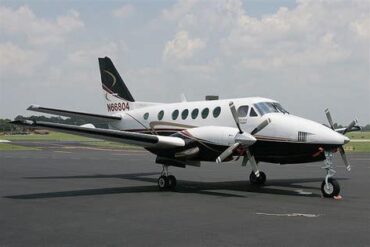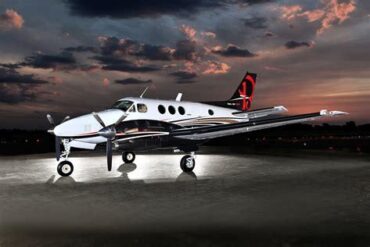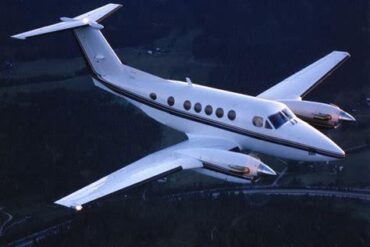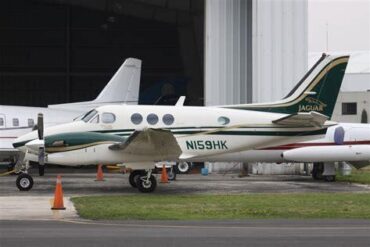The Beechcraft King Air 300 series has earned a reputable place in the aviation industry, particularly among business travelers and charter operators. This article delves into the price of the Beechcraft King Air 300 as well as the operating costs associated with owning and operating this exceptional aircraft.
Overview of the Beechcraft King Air 300
The Beechcraft King Air 300 is a twin-engine turboprop aircraft designed for versatility, comfort, and performance. It offers a spacious cabin that can accommodate up to nine passengers, making it an ideal choice for both corporate and leisure travel. The aircraft is powered by Pratt & Whitney Canada PT6A-60A engines, which provide a maximum cruise speed of approximately 300 knots and a range of around 1,800 nautical miles. With its robust design and advanced avionics, the King Air 300 continues to be a preferred option for those seeking reliability and efficiency in their flights.
Initial Purchase Price
When considering the purchase of a Beechcraft King Air 300, prospective buyers should be prepared for an initial investment that typically ranges from $2.5 million to $3.5 million. Several factors influence this price range, including the aircraft’s age, total flight hours, maintenance history, and installed equipment.
Factors Influencing Purchase Price
-
Age and Condition: Newer models generally command higher prices, while older aircraft may be available at a discount but might require more maintenance.
-
Total Flight Hours: Aircraft with lower total flight hours are often more desirable and can be priced higher.
-
Maintenance History: A well-documented maintenance history can add value to the aircraft.
-
Equipment Upgrades: Modern avionics and additional features such as upgraded interiors can also impact the purchase price.
Financing Options
For those unable to pay the full purchase price upfront, various financing options are available. Buyers can explore traditional loans, lease agreements, or even fractional ownership programs. Each option comes with its own set of terms and conditions, allowing buyers to choose the best fit for their financial situation.
Operating Costs
Operating costs for the Beechcraft King Air 300 can vary significantly based on usage, maintenance practices, and operational efficiencies. On average, the total annual operating cost can range from $600,000 to $800,000. This figure encompasses several key components:
Fuel Costs
Fuel expenses represent one of the most significant ongoing costs for any aircraft. The King Air 300 consumes approximately 50-60 gallons of fuel per hour. Given current fuel prices, which can fluctuate, operators should budget around $200 to $300 per hour for fuel alone.
Maintenance Costs
Routine maintenance is crucial to ensure the longevity and safety of the King Air 300. Operators should anticipate spending about $150,000 to $200,000 annually on maintenance. This includes:
-
Scheduled Maintenance: Regular inspections and servicing as mandated by the manufacturer.
-
Unscheduled Repairs: Addressing any unexpected issues that may arise during operation.
-
Parts Replacement: Costs associated with replacing worn or damaged components.
Crew Salaries
If the aircraft is operated commercially, crew salaries must also be factored into the operating costs. A typical crew for a King Air 300 consists of a pilot and possibly a co-pilot, with annual salary costs averaging around $100,000 to $150,000 for each crew member, depending on experience and location.
Insurance
Insurance is another essential cost associated with aircraft ownership. For a Beechcraft King Air 300, annual insurance premiums can range from $15,000 to $30,000, depending on factors such as the operator’s flight hours, type of operations, and coverage limits.
Hangar Fees
Storing the aircraft in a hangar incurs additional costs. Depending on the airport and the type of hangar, fees can vary widely, averaging between $500 to $2,000 per month. It’s advisable to account for these costs in your annual budget.
Miscellaneous Costs
Other costs that may arise include:
-
Landing Fees: Vary by airport and can add up depending on how frequently the aircraft is flown.
-
Navigation Fees: Charges incurred for using specific airways and air traffic control services.
-
Training Costs: Ongoing training for pilots and crew to maintain proficiency.
Resale Value
Understanding the resale value of the Beechcraft King Air 300 is crucial for potential buyers. Typically, aircraft depreciate over time, but the King Air series has demonstrated strong resale values compared to other aircraft in its class. A well-maintained King Air 300 may retain about 60-70% of its original value after five years, making it a solid investment for owners.
Conclusion
In conclusion, the Beechcraft King Air 300 presents a compelling option for those in the market for a high-performance turboprop aircraft. While the initial purchase price can be substantial, the operating costs are manageable, especially when considering the aircraft’s versatility and reliability. Understanding the intricacies of both the purchase price and the operating costs is essential for potential buyers to make informed decisions. As the aviation landscape evolves, the King Air 300 remains a staple in business aviation, offering comfort, efficiency, and exceptional value.
For anyone contemplating the acquisition of a Beechcraft King Air 300, we recommend conducting thorough research and consulting with aviation experts to ensure a well-rounded understanding of all financial implications.
